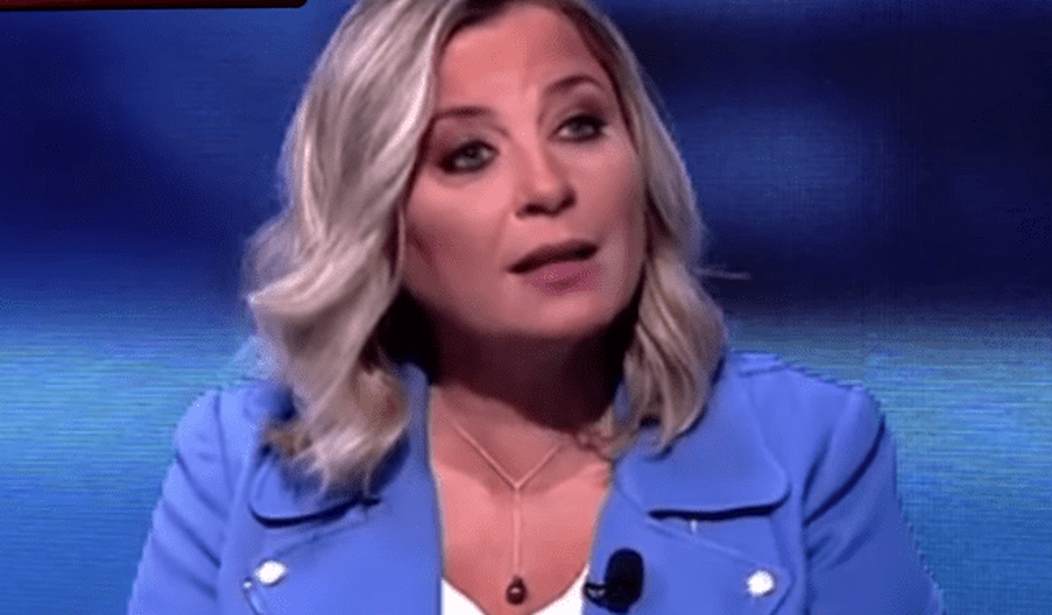On Sunday, Claudine Aoun Roukoz — head of the National Commission for Lebanese Women and a prominent personality in the country — said that if Israel and Lebanon were to resolve issues involving borders and Palestinian refugees, “I do not mind that the Lebanese state makes peace with Israel…. Are we required to remain in a state of war? I do not have an ideological dispute with anyone, but my dispute is political.”
Roukoz has been expressing such views on Lebanon’s national TV. Back on September 24, she wrote: “We all support the principle of peace and I hope to visit Jerusalem.”
Naturally, Roukoz’s statements this week drew sharp rebukes from some quarters. A source from Hizballah’s March 8 alliance said, “The pursuit of normalizing relations with Tel Aviv is seen as suspicions of treason.” And a member of a parliamentary faction aligned with the Shiite Amal movement said, “Our position is clear that Israel is an enemy.”
But what makes Roukoz’s declarations particularly striking is that she’s the daughter of Michel Aoun — president of Lebanon since October 2016. And not only that: back in August, a few days after the signing of the normalization deal between Israel and the United Arab Emirates, Aoun himself was asked about peace with Israel by French TV and hardly ruled it out, replying: “That depends. We have problems with Israel, and we have to resolve them first.”
Decades ago Michel Aoun was leader of a Christian militia that fought Syrian occupying forces in Lebanon. After a 15-year exile in France, he returned to Lebanon in 2005 to lead a Christian parliamentary bloc and seemed — to the surprise of many — to strike up an uneasy alliance with Hizballah.
So for Michel Aoun — and his daughter — to refer openly to peace with Israel is a new development. It comes against the backdrop of the ongoing Israeli-Lebanese talks on setting maritime boundaries.
It doesn’t mean it’s time to uncork the champagne. Multiconfessional Lebanon is still in Hizballah’s — that is, Iran’s — grip , and it’s probably still too early to loosen that grip.
And yet, under the momentum of Israel’s successive normalization deals with important Arab countries, the Middle Eastern atmosphere is changing. After the U.S.-brokered accords with the UAE and Bahrain, last week it was Sudan.
Many pointed out that the understandings Israel reached with the UAE and Bahrain weren’t really “peace” deals because Israel and those countries had never fought. With Sudan, though, it’s different. Sudan sent forces to fight Israel in the 1948 and 1967 Arab-Israeli wars. Starting in 1989 under Islamist President Omar al-Bashir, it hosted Al Qaeda leader Osama bin Laden, then allied with Iran and became a weapons depot for it — prompting reported Israeli airstrikes on Sudanese soil in 2009 and 2012.
Since al-Bashir’s ouster last year amid a popular uprising, Sudan has been trying to return to the world scene as a respectable country. The Trump administration set conditions for Sudan to do so: paying $335 million to American victims of Al Qaeda’s 1998 bombings of the U.S. embassies in Kenya and Tanzania — and reaching an accord with Israel. Last week Sudan accepted those terms.
The administration did not have to drag Sudan kicking and screaming into the deal with Israel. Though — again predictably — some Sudanese factions virulently oppose it, the deal is expected to be approved by the Sudanese parliament and is backed particularly by current leader Gen. Abdel-Fattah Burhan.
Israel is, after all — as the Arab world is by now very well aware — the Middle East’s hub of development and expertise in a wide variety of fields. Sudan is presently in dire economic straits, and $5 million worth of wheat is already on the way to it from Israel — to be followed by further agricultural and technological aid.
With the Middle East, caution is always advised. Large reserves of anti-Israeli and antisemitic hatred continue to exist in Arab countries, and the region is notoriously volatile.
Still, it’s hard not to be encouraged by these latest events — not least, Lebanese figures standing up and saying things about Israel in defiance of Hizbullah and Iran.
Behind it all is the reality-attuned, skillful, guiding hand of the Trump administration. Here’s hoping it won’t all start to change on November 3.
P. David Hornik, a longtime American immigrant in Israel, is a freelance writer, translator, and copyeditor living in Beersheva. In addition to PJ Media, his work has appeared in National Review, American Spectator, Frontpage Magazine, New English Review, American Thinker, The Times of Israel, the Jerusalem Post, and elsewhere. Among his books are Choosing Life in Israel and, newly released by Adelaide Books, the novel And Both Shall Row.









Join the conversation as a VIP Member